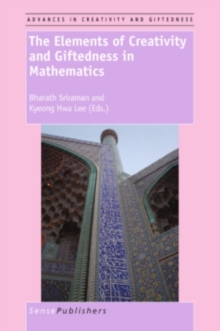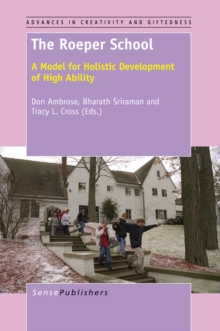
Families, Education and Giftedness : Case Studies in the Construction of High Achievement PDF
by Jim Campbell, Laura Mazzoli Smith
Part of the Advances in Creativity and Giftedness series
Description
What is it like to be YOUNG, GIFTED AND WORKING CLASS in contemporary England?How do working class family values support high educational achievement?What do researchers and policy makers have to learn about giftedness from working class families?These provocative questions are explored in this ground-breaking book.
Most studies of giftedness focus on the characteristics of individuals, and draw upon psychological frameworks to understand them.
Participants in most gifted education programmes are recruited disproportionately from the higher social classes.
Sceptical of the concept of giftedness, Mazzoli Smith and Campbell question conventional methodologies, using a narrative approach to understand how four families of working class origins, each with a gifted child, construct their values in relation to education and social class.
They explore the influence of their family histories, cultural values and life styles upon educational engagement and achievement.
The authors show that gifted education policies are poorly matched to the values of these families and argue that much research into giftedness has been flawed by social and cultural discrimination.
They propose an agenda for change in research paradigms in the giftedness field, which should be characterized by interdisciplinarity and more culturally relative conceptions of giftedness.
Information
-
Download - Immediately Available
- Format:PDF
- Publisher:SensePublishers
- Publication Date:12/02/2013
- Category:
- ISBN:9789460919916
Other Formats
- Paperback / softback from £39.00
- Hardback from £65.00
Information
-
Download - Immediately Available
- Format:PDF
- Publisher:SensePublishers
- Publication Date:12/02/2013
- Category:
- ISBN:9789460919916










